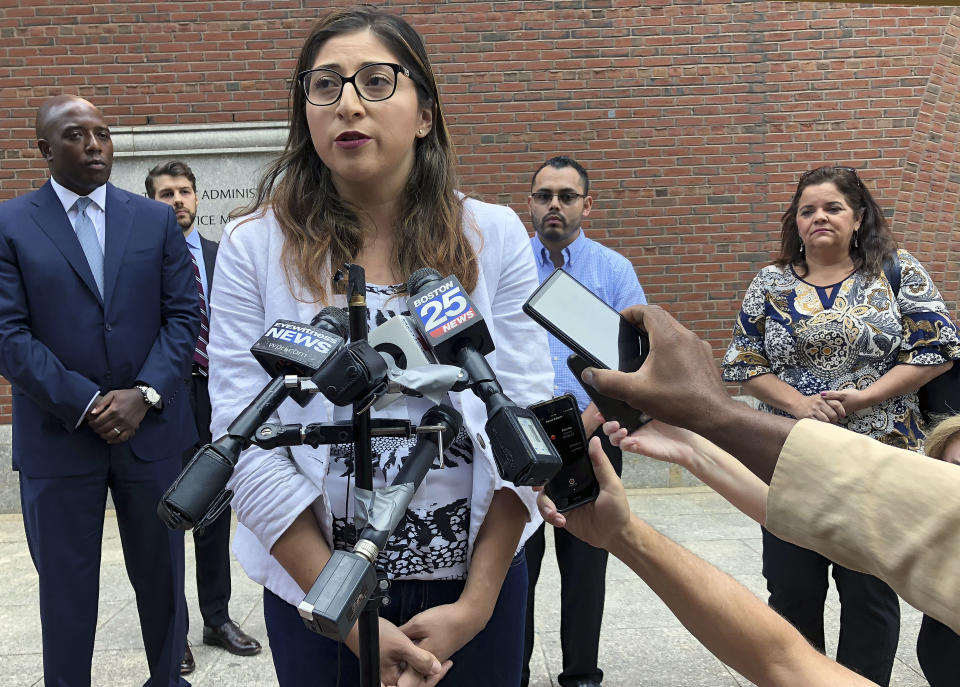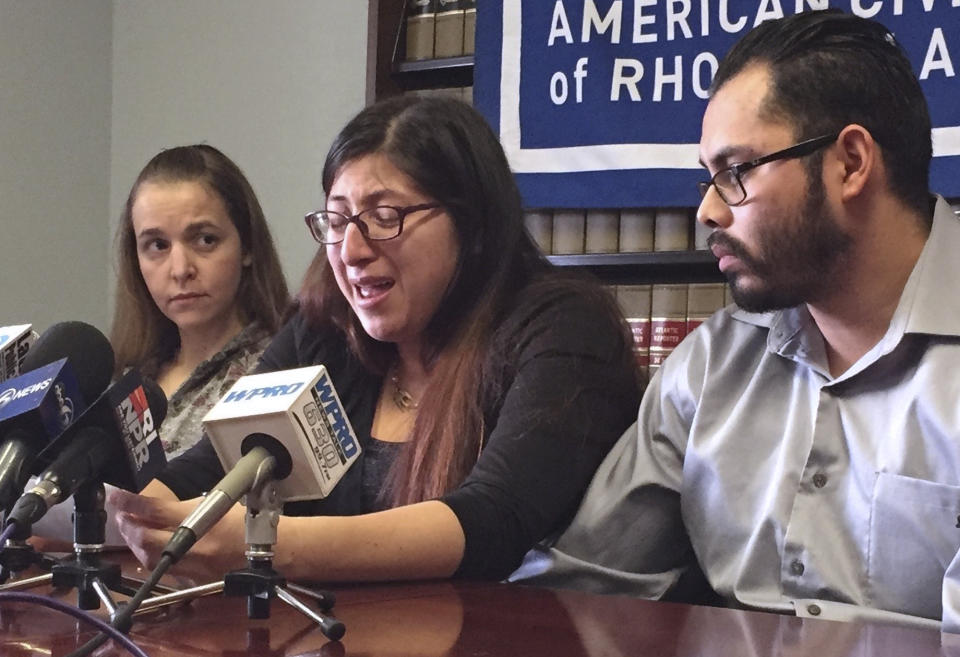Judge weighs suit challenging arrests of married immigrants
BOSTON (AP) — A federal judge in Boston heard arguments on Monday in a case centered on whether immigrants married to U.S. citizens but facing deportation should be allowed to remain in the country while they seek to become legal residents.
The American Civil Liberties Union, which brought the class action lawsuit, says a special exemption created under former President Barack Obama's administration allows certain noncitizen spouses of U.S. citizens to remain in the country while they apply for legal status through marriage.
But the organization argues that the 2016 Department of Homeland Security waiver, which was meant to prevent breaking up families and causing unnecessary hardship, isn't being honored by Republican President Donald Trump's administration, which has made stepped up immigration enforcement a priority.
"We didn't invent this process," ACLU lawyer Adriana Lafaille said during Monday's lengthy arguments. "It was put into legal effect by DHS."
Mary Larakers, a lawyer for the U.S. Department of Justice, countered that the regulations weren't originally envisioned to allow immigrants who have been ordered to leave the country — in some cases numerous times over the years — to remain indefinitely while they exhaust all of their legal options.
"That's not what it was intended to do," Larakers said. "It was for people who were already here who were not having their orders of removal executed."
The government also argued that the District Court doesn't have jurisdiction over the case since the immigrants named in the suit have since been released. Enforcement decisions lie with Homeland Security and immigrants can go through immigration court appeals process for judicial relief, Larakers added.
Judge Mark Wolf pushed back at the government's arguments at times.
He suggested the question wasn't about what agency has oversight over deportation but whether immigration officials were taking into consideration existing regulations in their deportation decisions.
"I recognize that different administrations can have different priorities," he said. "But that's not how laws change."
The administration, he said, can revoke regulations, but, "as long as they're there, they apply."
Monday's hearing comes after the ACLU filed legal briefs last week revealing how officials for the U.S. Citizenship and Immigration Service in New England are closely coordinating with their Immigration and Customs Enforcement counterparts to arrest immigrants as they attend required interviews for the citizenship process.
The ACLU criticizes the efforts as a deportation "trap" that violates the constitutional rights of immigrants otherwise following the rules to become legal residents.
Immigration and Customs Enforcement maintains that coordination between the two Department of Homeland Security agencies is lawful.
Lilian Calderon and Luis Gordillo, of Rhode Island, are the lead plaintiffs in the ACLU's case, which names four other couples.
Gordillo is a U.S. citizen, but Calderon is a native of Guatemala who came to the country as a young child and was ordered to leave in 2002 as a teen.
Calderon was detained in January after the couple attended a Citizenship and Immigration Service interview to confirm their marriage. She was released in February after the ACLU challenged the detention.


